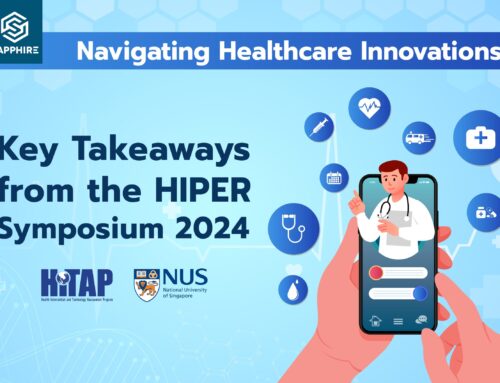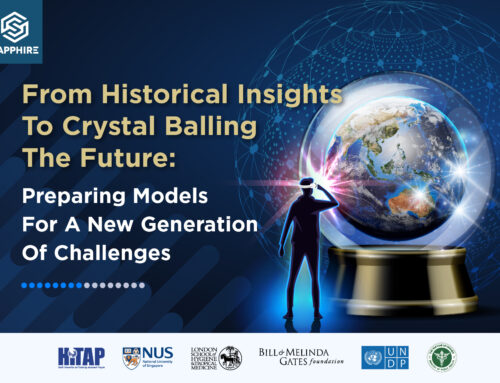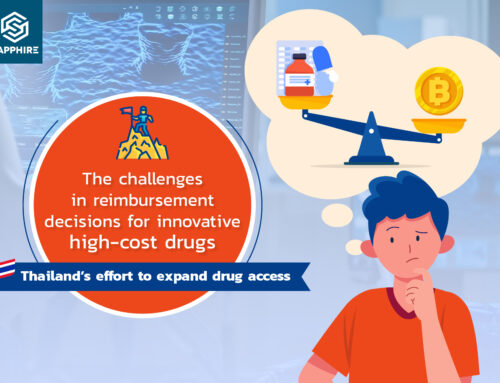It was quite an experience this time for it was both hectic and enriching. Pempa and I (Deepika Adhikari) are researchers from Bhutan and we were recently in Thailand for training and simultaneously attended the Prince Mahidol Award Conference (PMAC) too. We are grateful to the Health Intervention and Technology Assessment Program (HITAP) for providing us with such an opportunity.
The Essential Medicine and Technology Division (EMTD) under ministry of health, Royal government of Bhutan, and HITAP share a good relationship since 2013 and EMTD has benefitted immensely through various capacity building opportunity provided by HITAP. We are currently working together in the economic evaluation of Rotavirus Vaccine, which is the second project taken up by EMTD and HITAP together, first being the economic evaluation of Pneumococcal Vaccine in 2017. But for HITAP the first project with Bhutan was in 2013 assessing the PEN (Package of Essential Non-communicable Disease (NCD)) project. Since then HITAP has provided numerous trainings for Bhutan both inside and outside Bhutan. In 2017 a 10-day training on the economic evaluation of pneumococcal conjugate vaccine (PCV) using the Markov model was carried out. This time the 10 day training comprised of components such as comprehensive literature review and systematic review teaching us how to synthesize evidence and economic evaluation of Rotavirus Vaccine.
EMTD and HITAP are currently working on the economic evaluation of the rotavirus vaccine which is aimed toward finding out whether the vaccine is cost-effective in Bhutanese setting. We are also exploring which vaccine out of the 4 vaccine options available in the market is the most cost-effective one. As a part of the study a 5 year Budget Impact Analysis will be carried out to better inform the Bhutanese Health decision makers. The study uses the Univac model to determine the cost-effectiveness ratio. We are also very grateful to PATH in coming forward and working with us on this project. Major part of the project is now complete which is learning the model hand-on. The groundwork has been done and all we need to do now is collect the data and feed it into the model for analysis. While going through this research, we got the chance to explore various literatures of our Bhutanese health system such as the cost of health care in Bhutan. In our study, we are also trying to update this document to the current date. What I mean to say here is, this study is providing us an opportunity to understand our own system in-depth which we wouldn’t have been able to otherwise. We now feel much confident in doing our current project and hopefully the future ones too.
Besides the training, HITAP was kind enough to invite us to PMAC and its side meetings. Pempa and I also submitted our entries for the call for case-study on wasted buy, best buy and controversial buy in NCD prevention in Low and Middle Income Countries as this year’s theme was “The Political Economy of NCDs: A Whole of Society Approach”. The plenary sessions were very engaging and enlightening at the same time because coming from a small country like Bhutan, we can never really imagine the caliber of NCD and its burden globally. Some of the issues highlighted are things we heard for the first time ever such as industries’ involvement or interference in public health and how people in other countries are trying to tackle it. All the parallel sessions were equally exciting going by their topics. We so wanted to hop every session every 30 minutes but thought it would be wrong to do so. It’s sad that we did not have enough time to attend the PMAC throughout. PMAC also gave us the opportunity to meet with a former Minister of Health of Bhutan, whom we could have never met otherwise. We even got some time to share some thoughts and gain valuable lesson from him. To add more, we were also able to expand our network by meeting an official from Imperial College London who has experience in thresholds and even offered to provide help and assistance if we do our own threshold study in the future. Furthermore, we were also able to connect the Chief of Non-communicable disease division of Ministry of Health of Bhutan to the PMAC partners who are currently working on a book on Political Economy of NCDs. Not to forget, we also thoroughly enjoyed the Gala dinner and especially the Muay-Thai.
Not to brag but we were highly efficient and made the most out of this trip to Thailand. To sum up, we were on a learning quest and took a roller-coaster ride on knowledge train.





